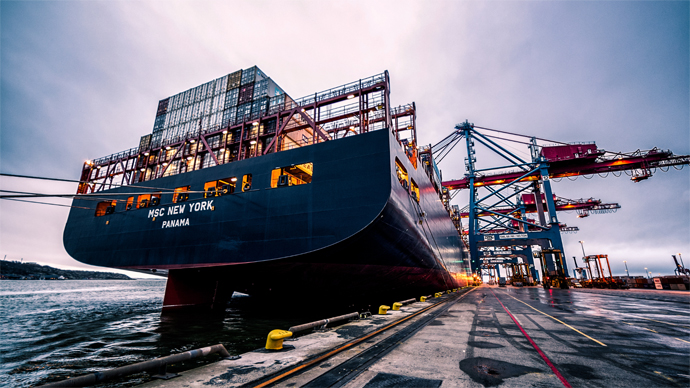What You Need to Know About Project Logistics
← Back
By sector, logistics is big business and an industry that plays a significant role in the economy. When any organization makes something or sells something another organization makes, it needs logistics services to keep its operations running smoothly. Project logistics and project transportation have an important place in this.
By sector, logistics is big business and an industry that plays a significant role in the economy. When any organization makes something or sells something another organization makes, it needs logistics services to keep its operations running smoothly. Project logistics and project transportation have an important place in this.
In its most basic definition, project logistics includes the basic transportation process. However, this migration process is not an easy one. Project logistics; cannot be transported by standard vehicles, vehicles specially designed for this purpose and produced for this purpose are preferred.
What is Project Transportation?
Project transportation ; refers to the well-equipped transportation of devices in areas such as factories, construction, mining in the public or private sector. For example, it could mean getting everything needed to build an entire oil rig to get to the right place at the right time, or transporting large pieces of machinery such as military equipment, boats, and airplanes.
At this point, it brings along the complex storage and distribution tasks from customers and the application of project logistics for project transportation. Due to the provision of services to many sectors in many areas, each customer expects the appropriate requests to be fulfilled as soon as possible. It is important to anticipate the risks that may arise against possible accidents and damages in project transportation, where the route to be used is extremely important. These risks must be calculated separately so that the goods transported are not damaged during the transfer process. At this point, the integral part of project logistics, which is intertwined with project transportation, is insurance. In the absence of insurance, in case of damage, the logistics company loses its customer and may encounter a cost much higher than the service fee.
Project logistics, from getting the goods ready for transport, by sea, air or road; It includes the management of everything related to the logistics of your building or construction project across complex supply chains, from shipping, storage, travel and arranging unloading at the final destination. This often involves moving large, heavy, expensive, or even dangerous items around the world, sometimes to hard-to-reach places, and dealing with all the paperwork involved.
The project logistics method is often at the heart of a successful project. Project logistics management is the sum of the services that include planning, organizing and managing resources in order to successfully meet the logistics needs in line with the project goals and objectives. The good thing about the project logistics method part is that there is an effective methodology to complement the approach.
Project Logistics Management and Supply Chain Management Relationship
Project logistics management is a subset of supply chain management. When considering the construction of a new facility, it is seen that the supply chain management and the project chain overlap. When the field teams are needed, materials and services should be delivered to the project site as soon as possible. What you need to know about the project logistics method can be listed as follows:
The primary objective of the project logistics method is to achieve all project objectives while complying with the project constraints. The secondary objective is to streamline the allocation and integration of the necessary inputs to meet predefined tasks. To be successful in this environment, it is necessary to react quickly to events that occur. The ability to plan until the last moment is needed. Access to instant information about the operation should be provided. It also includes:
A collaborative management approach:
A collaborative management approach connects the project team and key stakeholders in problem solving and decision making.
Adaptability:
An effective project logistics manager is viewed as someone who can immediately assess a new situation and adapt to the current situation.
Flexibility:
How change is managed can make or break any technical project logistically. Flexibility is generated by the creative thinking that no project can achieve without it.

 HONEST
HONEST Eğitim Portalı
Eğitim Portalı Müşteri Portalı
Müşteri Portalı Bize Ulaşın
Bize Ulaşın